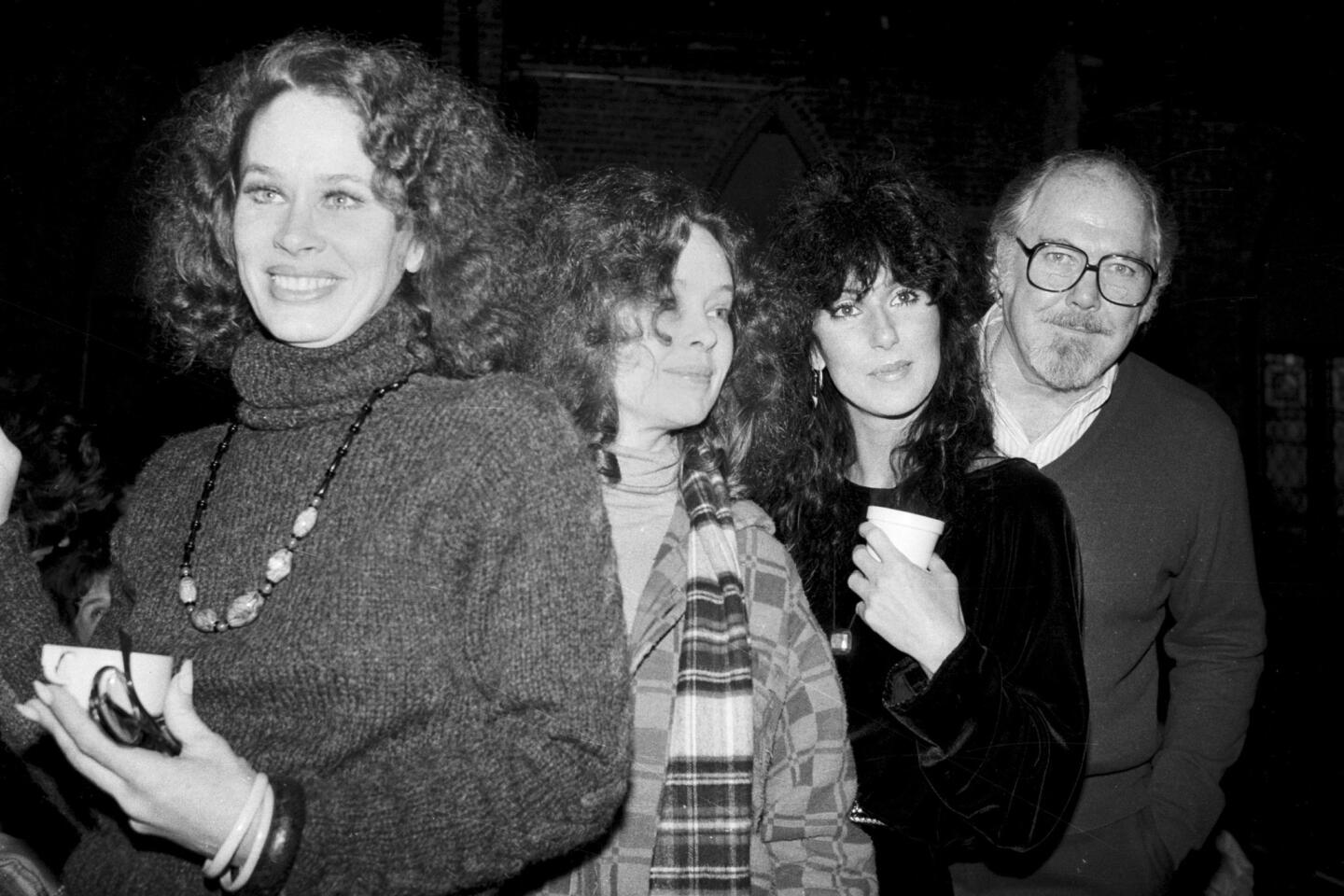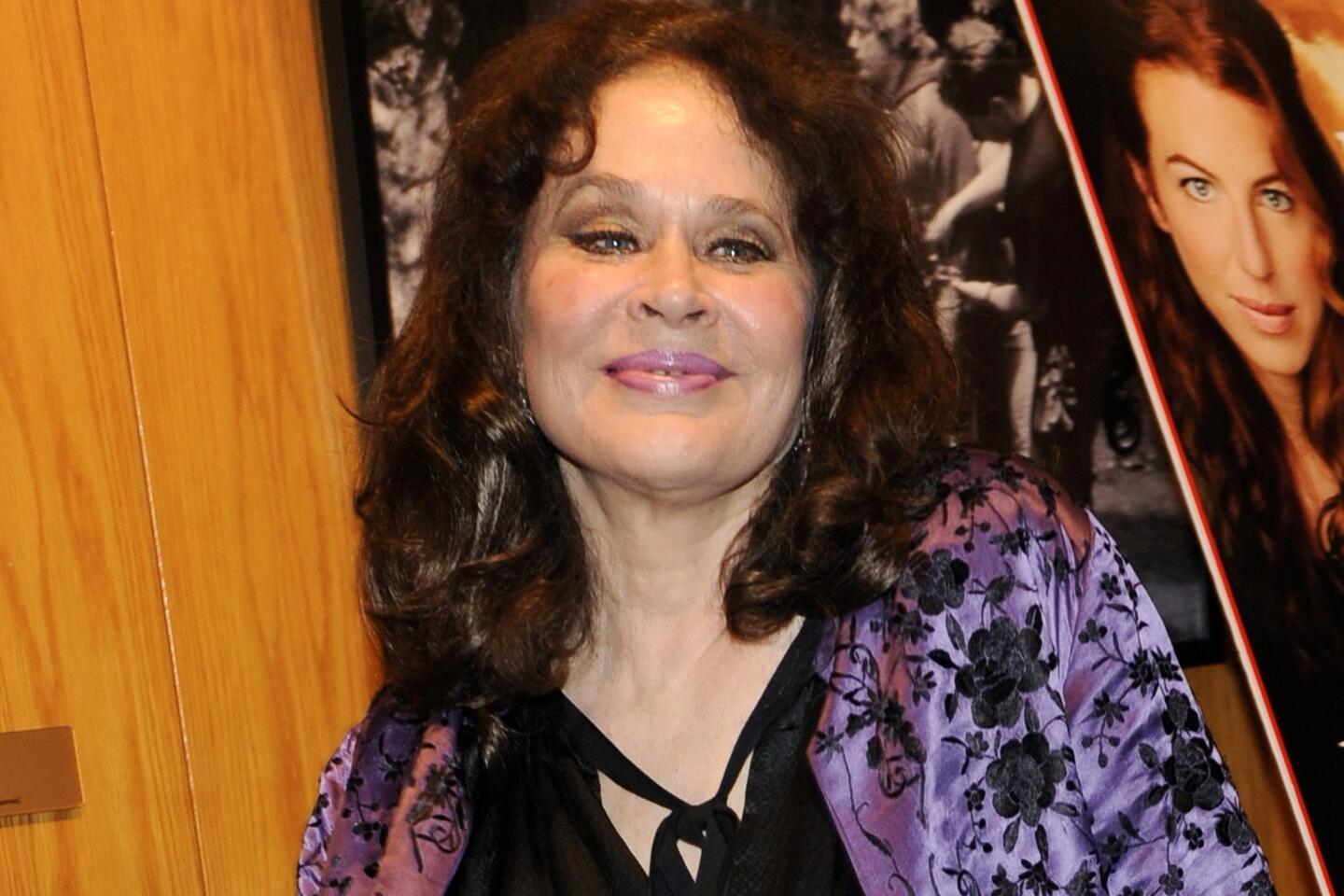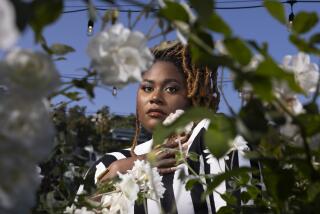Karen Black dies at 74; actress starred in ‘Five Easy Pieces’ and ‘Easy Rider’
Karen Black, the bravely offbeat actress who burst into the public consciousness in such iconic counterculture films as “Five Easy Pieces” and “Easy Rider,” has died. She was 74.
Black, who was found to have ampullary cancer in 2010, died Thursday at West Hills Hospital, said her husband, Stephen Eckelberry.
FOR THE RECORD:
An earlier version of this article said Black died at the West Hills Health and Rehabilitation Center in Canoga Park. She died at West Hills Hospital.
In April, she had turned to the public to help defray the cost of her medical treatment, raising more than $60,000 through an appeal by her husband on a crowd-sourcing website.
With compelling, close-set eyes that gave her a distinctive appearance, Black built a film resume that included prostitutes, murderers, waitresses, transsexuals and thieves. She imbued the portrayals of her often vulnerable, working-class characters with pathos and occasional humor.
PHOTOS: Notable deaths of 2013
“She came along at just the right time, as American cinema was changing in the late 1960s and early 1970s,” film critic and historian Leonard Maltin said in an interview earlier this year. “She didn’t have a lacquered Hollywood look or demeanor. She seemed like a real person, and that was exactly what the young filmmakers whose careers were blossoming at the time were looking for.
“There was an honesty and a vulnerability about her that suited so many of the characters she played.”
In “Easy Rider,” Dennis Hopper’s 1969 counterculture classic, Black’s role was small but memorable as a New Orleans prostitute who drops acid in a cemetery with the lead characters, played by Hopper and Peter Fonda.
That gave rise to perhaps her best-known part, that of Rayette Dipesto, the country music-obsessed waitress who becomes involved with Jack Nicholson’s brooding drifter in “Five Easy Pieces,” released in 1970. Black received a best supporting actress Oscar nomination for her portrayal of the clingy, tragic Rayette, who becomes pregnant and is then abandoned by Nicholson’s character, Robert Eroica Dupea.
PHOTOS: Karen Black: 1939 to 2013
“I’ll go out with you, or I’ll stay in with you, or I’ll do anything that you’d like for me to do if you would tell me that you love me,” she says, curled up beside Dupea in an early scene.
Through the first five years of the 1970s, she worked at a fevered pace, appearing in 15 movies. In a 1974 version of “The Great Gatsby,” she was Myrtle Wilson, the garage owner’s wife who has an affair with wealthy Tom Buchanan. In “The Day of the Locust,” the 1975 film adaptation of Nathanael West’s novel, she was Faye Greener, a young woman yearning for stardom.
With her proclivity for offbeat roles, she appeared in two films for iconoclastic director Robert Altman, including “Nashville” in 1975, in which she played a country singer and performed three of her own songs. In 1982, reprising a role on Broadway, she was Joanne, a transsexual, in Altman’s “Come Back to the Five and Dime, Jimmy Dean, Jimmy Dean.” New Yorker critic Pauline Kael called the taut performance Black’s best.
She also appeared in such mainstream fare as the 1974 film “Airport 1975,” playing a flight attendant who lands a crippled plane. “I thought it would be nice to be a dyed-in-the-wool, strait-laced heroine,” she told The Times in 1975.
PHOTOS: Celebrities by The Times
Karen Blanche Ziegler was born July 1, 1939, in Park Ridge, Ill. Her father, Norman, was a businessman; her mother, the former Elsie Reif, was a writer. Black — who took the name of her first husband, Charles Black — attended Northwestern University after high school and soon after headed for New York.
She took classes with Lee Strasberg at the Actors Studio and had a number of off-Broadway roles, before attracting the notice of critics for her first Broadway appearance in the 1965 thriller “The Playroom.” Work in television and films soon followed.
She remained active throughout her career, although her later roles were often in horror and science fiction movies, which earned her a cult following. In the 1990s, she appeared mainly amused when a New York-based glam punk band paid homage to her, calling itself The Voluptuous Horror of Karen Black.
Black, who also wrote plays and appeared in one-woman cabaret shows, was a longtime adherent of the Church of Scientology, telling the Chicago Tribune in 2008, “It just works for me.”
Her first three marriages ended in divorce. She married Eckelberry, a film editor and producer, in 1987. He survives her, along with their daughter, Celine; Black’s son, Hunter Carson, from her third marriage; another daughter, Diane Koehnemann Bay, from her relationship with Robert Benedetti; her sister, Gail Dugan, an actress who was known professionally as Gail Brown; a brother, Peter Ziegler; and grandchildren.
Trounson is a former Times staff writer.
More to Read
Start your day right
Sign up for Essential California for the L.A. Times biggest news, features and recommendations in your inbox six days a week.
You may occasionally receive promotional content from the Los Angeles Times.









